When Jamie Lee Curtis recalls a moment in time when she was overcome with a revelation, her arms propel upward, her fingers spread apart, her head jerks back, and she lets out an onomatopoeic-like boom. It’s as if a stick of dynamite ripped a negative thought or misconception out of her head and created a new path forward. A mining metaphor for opening her mind.
When speaking with Curtis, a look behind her eyes reveals that mind in constant motion, eager for more information, more insight, more interaction, more explosions.
Many discoveries have blasted their way through Curtis’s head. Her motto, a result of one of those detonations, is “Live Wisely and Love Well.” That sentiment is not only conveyed to all those she meets, but it’s an authentic descriptor of Curtis. She is a walking book of wisdom, giving from an infinitely deep well of love.
To her, life boils down to two choices, exclude or include. Since the former is about hate, she has no room in her heart and mind for that. And, since the latter is about love, that is where she chooses to focus her time, energy, and her inclusive spirit.
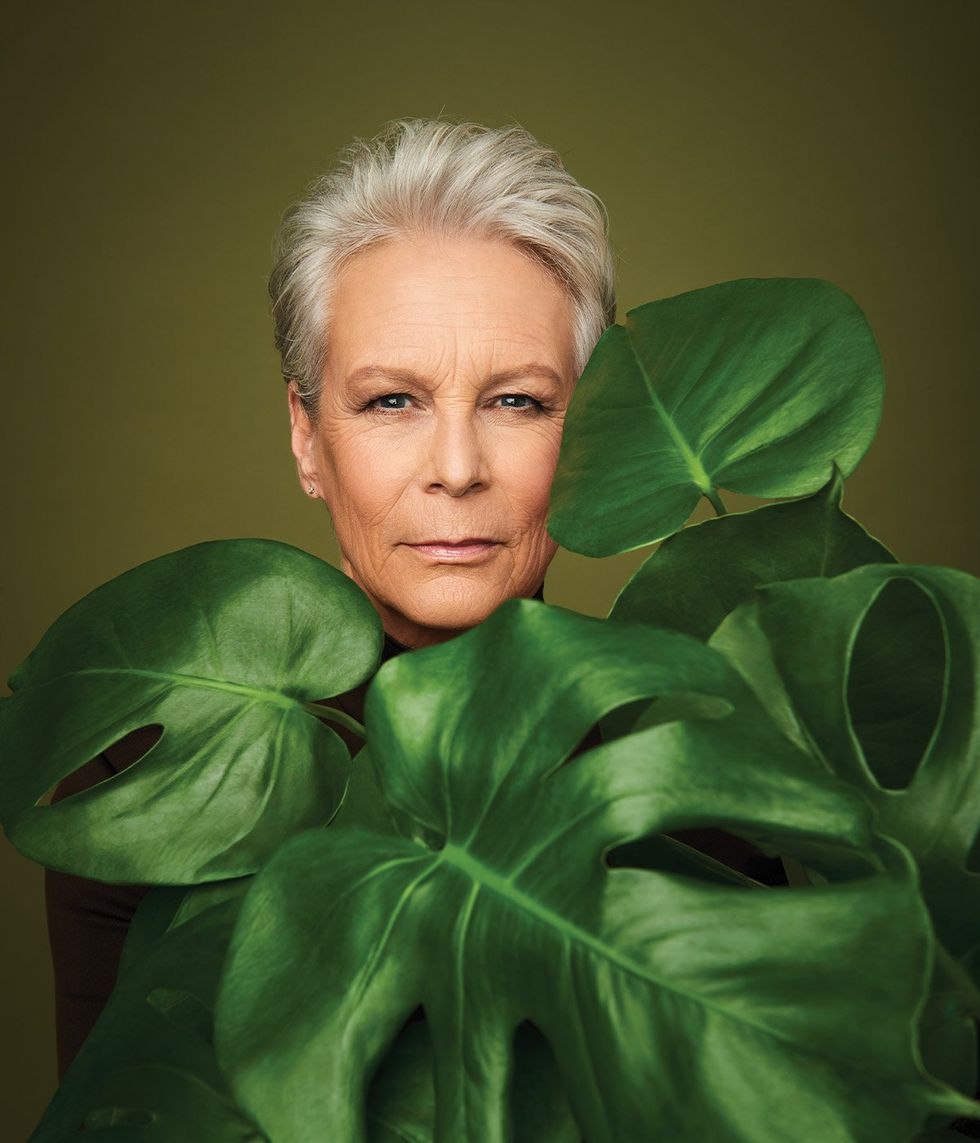
At 65, Curtis is arguably at the peak of her fame. While some may become jaded over the years by life’s challenges — or of constant scrutiny like Curtis has faced — she is jauntier. She glides across a room, with her head held high, and a smile that sings. There’s a glint in her eye that hints of holding a happy secret filled with love, one that she’s eager to share.
She describes the uneven road to these discoveries through a forward she wrote for a book that changed her life, and that she reads daily, The Book of Awakening, by Mark Nepo. The tome is, in part, her manifesto, that addresses privations confronted and outcomes conquered. “We all struggle with the meaning of life, with finding a purpose," she says. "Most of us follow the patterns and imprints of our parents and feel catapulted into life where we bang around like a pinball in a machine and end up coming out the bottom, relieved that we are still here and somewhat whole, but battered and bruised from the journey.”
Curtis was catapulted into the public eye the minute she was born, the daughter of iconic actors Janet Leigh and Tony Curtis, who still leave an ineradicable imprint to this day. And last year, after her Oscar win, we can finally allow that their daughter has left her own indelible stamp, perhaps eclipsing those of her parents. She was raised by her mother and her stepfather Robert Brandt, who was a stockbroker. For the most part, the family lived outside of the Hollywood spotlight.
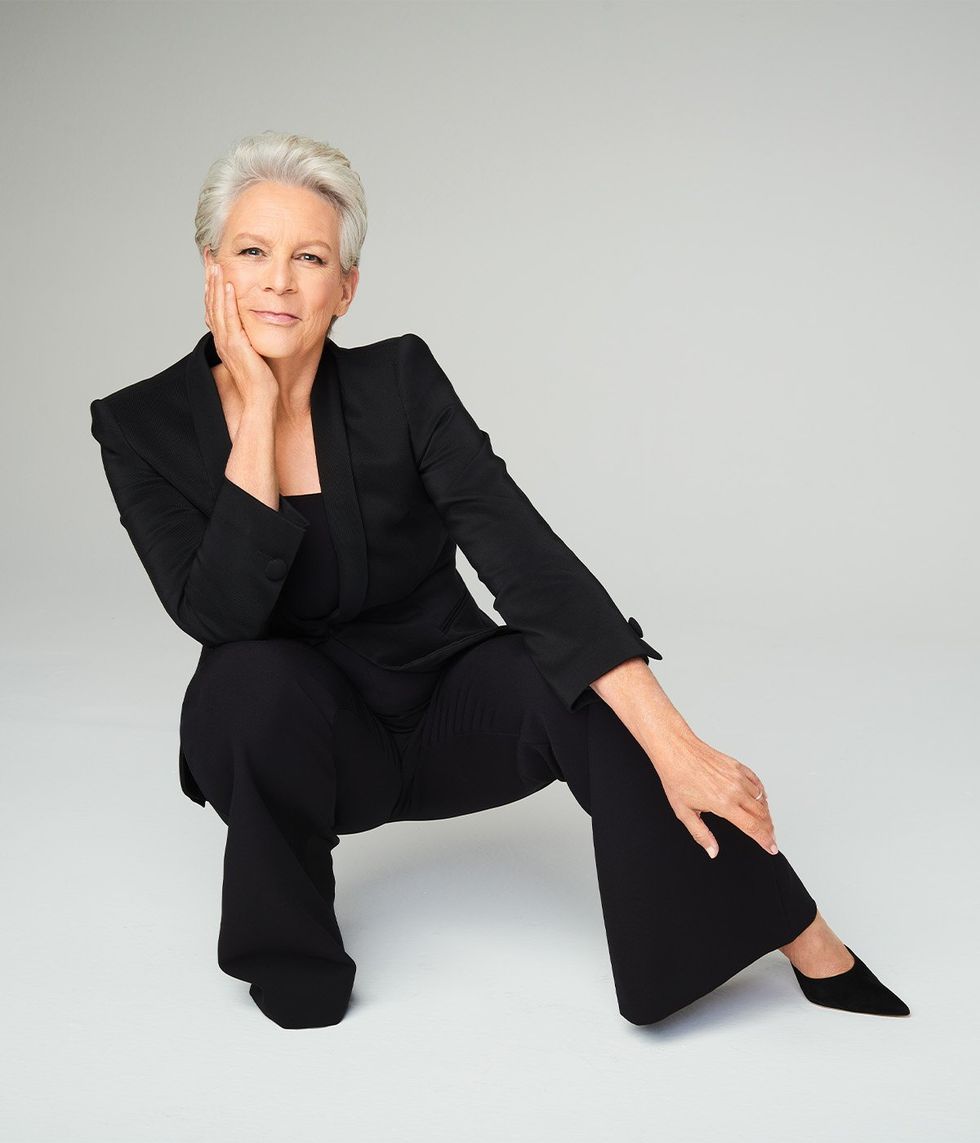
Curtis spent one semester at the University of the Pacific, where her mother went to school. At 19, she left to become an actor, following in the footpaths of her parents. She banged around Tinseltown for a couple of years, then was propelled into her own global celebrity when her first film, Halloween, became a commercial and critical success in 1978.
Since then, Curtis’s career has stayed mostly in the north part of that pinball machine, with well-received sequels to Halloween, and hits like Trading Places, A Fish Called Wanda, True Lies, and Freaky Friday. A few years before Friday, she had an awakening — a “boom” moment that led to sobriety. Today, she has been sober for 25 years.
Then in 2019, a loud ding when Knives Out, in which she starred, racked up accolades and audiences. Curtis was suddenly back on top.
The iconoclast then took a chance with the role of IRS inspector Deirdre Beaubeirdre in an off-beat comedy, drama, and fantasy film that evoked its title, Everything Everywhere All at Once. And she hit the jackpot. Her astonishing performance lurched her into the pantheon of Hollywood history, garnering that Oscar for Best Supporting Actress.
Her family and her friends call her “mommy,” and if you spend any time with Curtis, you’ll understand why. She is at once no-nonsense and nurturing, motivated and maternal, tough and tender. During an appearance on MSNBC’s Morning Joe over the summer, she demonstrated those motherly dichotomies while discussing her trans daughter, Ruby. “I will fight and defend [Ruby's] right to exist to anyone who claims that she doesn’t,” she thundered. “This life is about love.”
Curtis’s life is so full, and she is so full of life; it can be hard to distill down a conversation with her that includes such a rich personal history and a moving array of powerful proverbs stored in her expansive mind.
What follows is an edited version of Curtis putting her hand in yours…
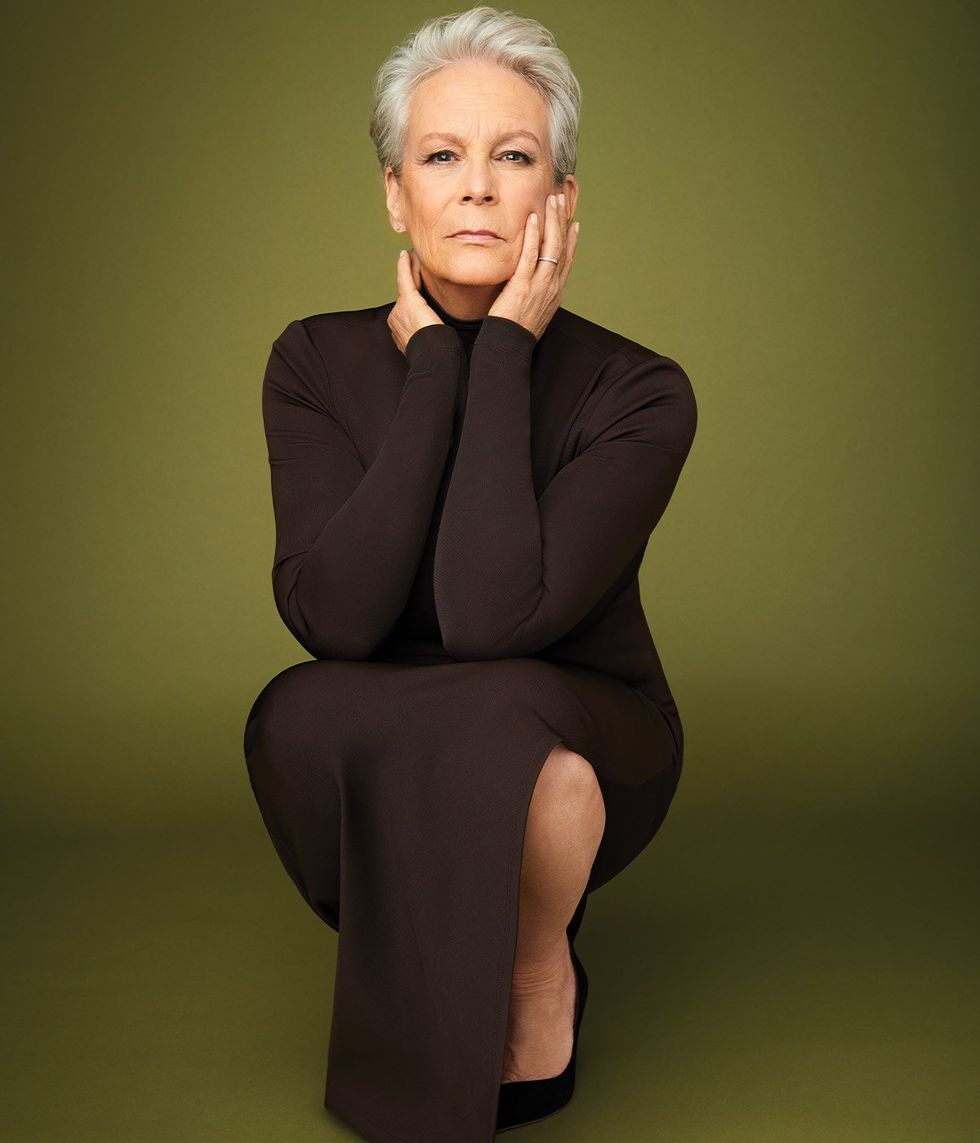
The Advocate: How important is it for you, and for people in the industry, and other noteworthy people to speak out on behalf of transgender individuals, particularly during a time when the community is under constant attack?
Jamie Lee Curtis: Well, this is way more than a trans issue, so to me, it’s a human issue, although, of course, much of the focus of hate right now is on trans people. I am advocating as a mother with a trans child, but it is also as a mother to a community. I want to represent the voice of support for all other things be they trans, queer, gay, or Black, or even if they’re a rescue animal. I want to offer the same care and concern to them as I would to my own trans daughter.
Is there a learning curve to being a mother to the LGBTQ+ community, so to speak?
I’m going to say it here. I am not an expert on trans issues. They are complex. They demand scholarly, longitudinal review. There are aspects of many of the issues facing trans people and people who are not trans that demand real thought. I am an autodidact. I read a lot. I try to educate myself and trying to do it in a non-binary mental state, which means I have to be open.
I’m trying to read all of it, and I have teachers. One of my teachers is Alok [Vaid-Menon]. If you don’t know them, they’re gender-nonconforming and a beautiful voice to their millions of followers on social media. Alok responds to hate in such a loving way, it’s so impressive.
I had a friend, Father Angelo, who said that the Catholic Church, for example, excludes, which in his mind only proliferates hate. Do you think there’s some truth to that?
At the end of the day, it must be about inclusion. Because at the end of the day, when you sift it all down, all the opinions, all the ideas, all the science, all the points of view, it is going to shake out to be inclusion or exclusion. That’s it. And at the end of the day, I am going to choose inclusion because exclusion is hate.
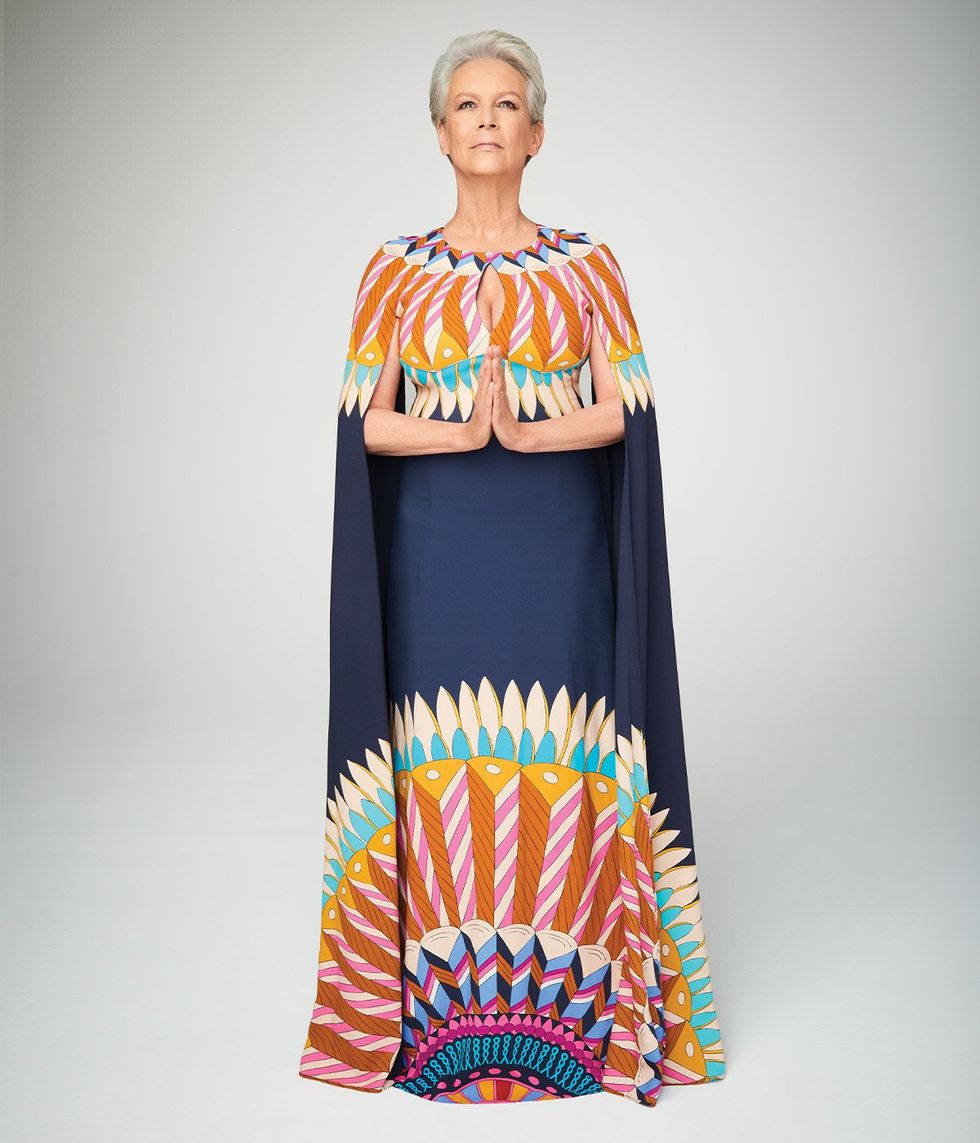
This all sounds like it springs from what I might call your motto, “Live wisely, love well”?
The whole learn to live wisely, love well, that was like, wow, that’s profound. It was when Princess Diana died, and I was going through a book of meditations that someone had given me. The book said people who live mindfully ask themselves two questions when they die: did they learn to live wisely, and did they love well? And I thought Diana did that.
That motto was a seed. To be wise on being queer, I’ve read 20 books on trans and queer issues. Every article that comes out, I try to read it. I find long articles hard to read sometimes, but I kind of claw my way through them. I go back and read what I didn’t initially understand. I’ve read Helen Joyce’s books. I want to know, I want to learn, I want to grow. Everything I’m getting, I’m getting out of reading.
You’ve always been involved in doing good work. I know you’ve been very active for HIV/AIDS stretching back to the start of the epidemic. And, for pediatric health care and the Children’s Hospital of Los Angeles. Then there’s your My Hand in Yours organization, to name just a few. You’re also an accomplished children’s book author, with your latest a graphic novel, Mother Nature, centering climate change. Do you think that you’ve got the passion to be altruistic from your mom?
Yes. My mother spent her entire life with a feeling of gratitude of the sort of miracle that was bestowed on this young woman from Merced, California.
And she participated charitably in organizations throughout my life. The most important being a group started by Hollywood wives, and my mother was a founding member. It was called SHARE, which is an acronym for Share Happily and Reap Endlessly that benefited the Children’s Foundation, which dealt with kids with intellectual disabilities, and the spectrum of and challenges for those children.
My mother was also an early participant at the Special Olympics. Eunice Kennedy Shriver and my mother were close friends, and she was very friendly with the Kennedys. My mother was offered an ambassadorship under the Johnson administration to Finland, but she turned it down. I think she felt that it was not fair to her husband and children to sort of drag them to a foreign posting, even though it was a great honor for her.
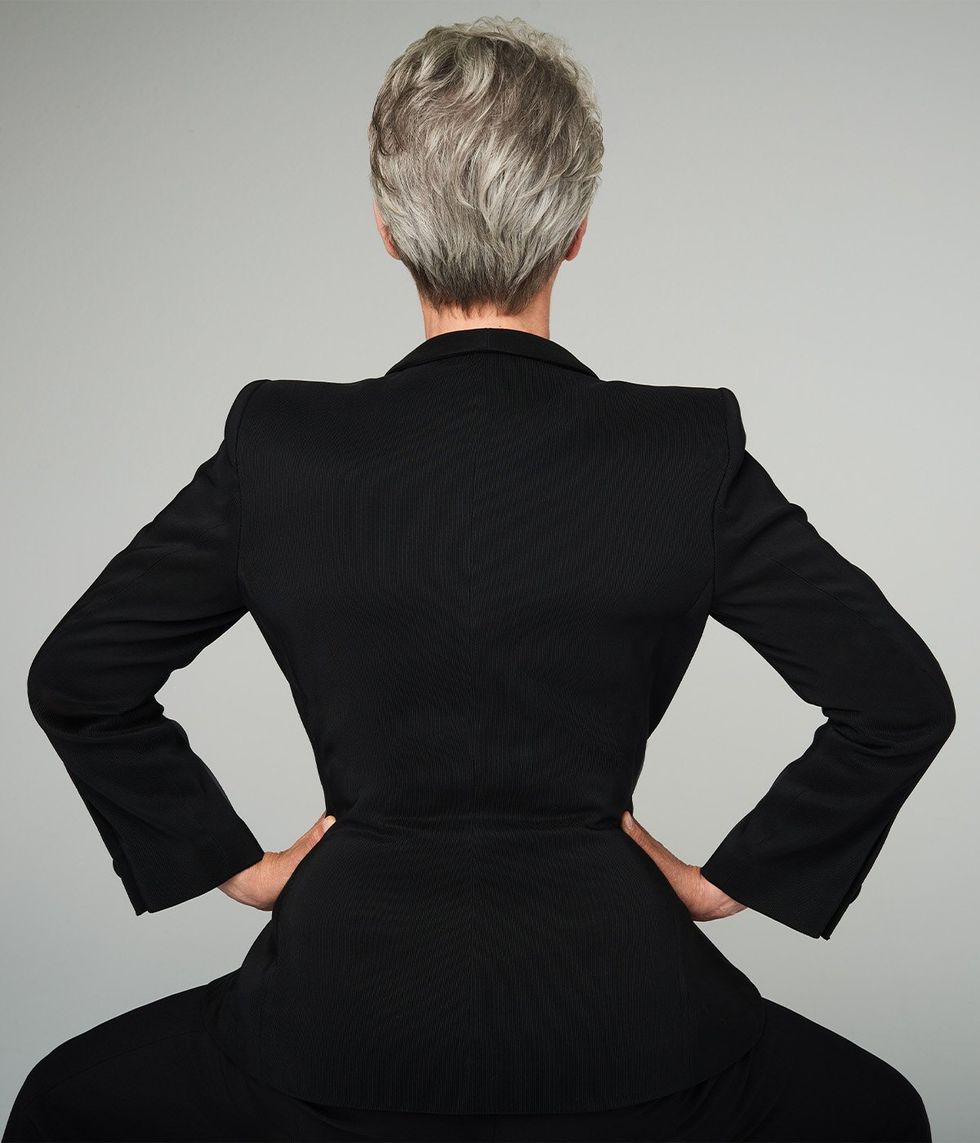
So, on that train of thought, you had no problem being an advocate for our community. Championing a cause is an inherited trait.
I was raised around that. So, from the beginning, I have had zero problem with this. Somebody asked me the other day, why are you doing the The Advocate cover? And, I said, because they asked me. And because I’m Ruby’s mom. And because it’s an important conversation to be having right now. And I’m having a moment in the world of show business. And so why not take advantage of that moment and lend it to a publication like The Advocate? So, in this instance, I will step out into the spotlight because it means something to the queer community and to my daughter, and I will be there always.
Let’s go back a bit. Do you remember the first queer person you ever met?
My mother’s makeup artist was a man named Doug Kelly. And then my mother had a friend, a gay playwright named Leonard Gersh who wrote the play Butterflies are Free, and coincidentally when I first auditioned to be part of the contract players at Universal Studios, I had to do a scene from that play.
How about any queer people that have had a major impact on your life?
There are several. First, Billie Jean King. She is the best example of someone who held onto her center and told her truth and sustained an incredible amount of pressure and hatred. As I like to say, she told her truth in a hurricane, and that takes guts. Alok is a new friend and a new teacher, but Billie Jean was really the first queer person I looked up to and admired.
Then, there’s someone I didn’t know, but who has been with me in spirit for the last 12 years or so. I’ve been attempting to tell the story of Glenn Burke who invented the High Five and began his baseball career playing for the Los Angeles Dodgers in the 1970s.
I’ve written columns about him. I’m a big baseball fan, and Glenn Burke’s story is just so tragic. How did you find him?
Well then, as you know, he was a Black, closeted gay L.A. Dodger and was traded to the Oakland A’s, and ultimately kicked out of baseball for being gay and ended up dying of HIV/AIDS in Oakland.
I read the first book about him, Out at Home, by Erik Sherman, and bought the rights to the book. It’s been an incredibly long journey, but I started working with Ryan Murphy and we just moved the project from Netflix to Disney before the strike, and Ryan and I are excited about getting the project up and going after the strike is settled.
Then, there was someone very, very special. I was working on a television series with Richard Lewis back in the late ’80s, Anything But Love, and we were auditioning actors who would play my assistant. We must have seen 80 guys, all doing the scene we gave them the exact same way, except one actor who came along, and did it differently and uniquely.
You asked me who the most important person was, and it was that actor, Richard Frank. He was gay. He was in a partnership with a man named George Lowe. Richard became my best friend. I loved him.
Rick and his husband, George, both [developed] AIDS. George got sick first. And Rick got a job touring with The Sisters Rosensweig, the Wendy Wasserstein play. He had to work because they needed money, so he took the job and he went on the road, and then he started to get sick too, and that was awful. And then George died.
Rick came home and tried to get work. He got a part in a TV show as a guest star part, and when he went to the makeup and hair trailer, the makeup artist handed him a Ziploc bag with a hairbrush, a powder puff, makeup, and a sponge and said, “My union says I don’t have to do your makeup.” It was awful.
Rick died while I was shooting the sequel to A Fish Called Wanda in Europe. We spoke everyday while he was dying. I told him to wait for me. He waited for me. I came home in August; he died in August of 1995. He loved me. He would have been thrilled for this year that I’ve had professionally, with winning the Oscar. There was nobody who would have been happier.
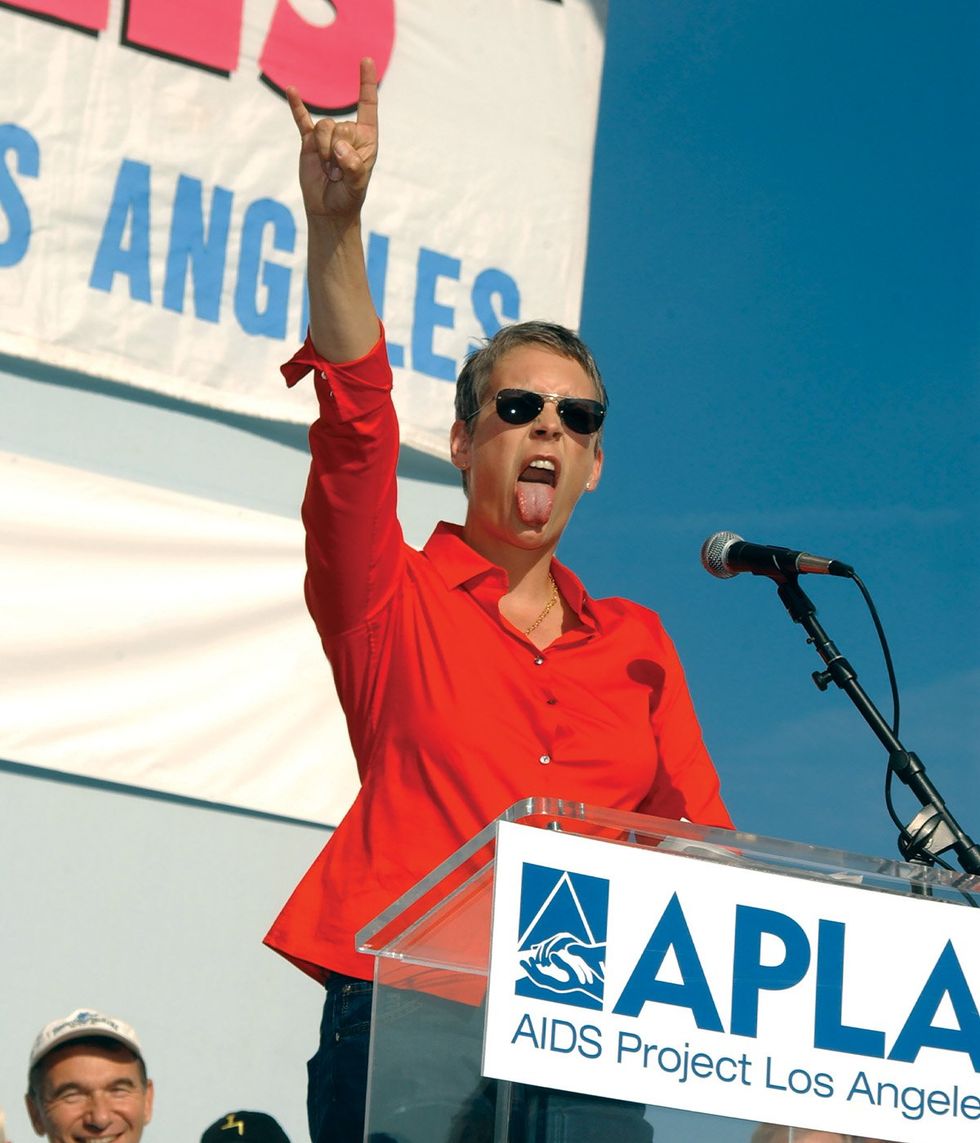
Again, that just breaks my heart. If you want, now, I’d like to talk about Ruby, and the first question is always the most obvious, but when she told you that she was transgender, did you see that coming?
No idea whatsoever. In retrospect, the one indication was that since she was young, whenever she played video games, she always chose a woman for her own avatar. And I said to her once, “Why?” And she would say, “I just like [messing] with my friends.”
In retrospect, that was probably a way that Ruby was trying to explain what she was feeling. But there were no other indications. So, it was not something that had ever been in my mind or in my life, and it became something very real, very quickly.
And then immediately, your first response as a parent is to educate yourself. Well, the first thing is to say, I love you, and I will support you through whatever you are going through. You’re a parent, and that’s what your job is, which is to say, “I respect and love you for who you are.” And then it became a point of trying to educate myself as much as I could. And Ruby has had family support from day one, and it has progressed, and that support has expanded quickly, from pronouns to, you know, a very clear declaration of becoming Ruby, and all of the legal changes that that entails, all of which are not for the faint of heart.
Now, because this is all about a mother’s love, I want to ask you about your own mother. How do you think she might have reacted to her granddaughter?
[Long pause.] My mother has been dead for a long time. My father’s been dead a long time. I would like to believe that she would have been accepting, but I’m not sure that either one of them would have understood it, given their generation. I would like to believe that she would have been supportive.
Now, going back to the fact that this whole experience is not for the faint of heart, I want to talk about the good stuff because there’s been a lot of that!
By all means, please do!
Both of my children were married in my backyard. My daughter Annie and her husband, Jason, were married in July of 2019. Ruby and Kynthia were married a year ago, at the end of May, where everyone dressed in costume. I officiated her wedding in a costume that she chose for me.
And for Ruby’s wedding, I wanted the whole person of Ruby in every aspect participating, including the human beings that created her and her families. Ultimately, the whole point is love. And it’s love, and inclusivity, for the whole of you…. It was an extraordinary moment for me to be the officiant of that gathering.
My sense is that you are the type of person that brings people together, and that’s an amazing characteristic to have.
When I got married to Christopher [Guest], the only thing I asked my father for was that all my siblings would be in one room with my parents and me at my wedding. So, it was the only time in my entire life I had my five siblings together. Tony had six children. My mother, my stepfather, my husband, my husband’s family. The only time in my life that I had my family under one roof. And it never happened again. That’s why Ruby’s wedding meant so much for all of us.
[She shows a picture of the wedding on her phone.] This photograph means everything. It’s Ruby’s family and my family in community. Her birth family, her biological family, everyone in one group, everyone included, under the arch of a Pride-colored rainbow of balloons.
Through this whole experience, my goal wasn’t to be perfect. I am a student of all of this, and my daughter is my teacher. That day wasn’t meant to be perfection. Love was my goal, my only goal. Love led to that joyous moment. God’s love. Love is love. Live wisely, and love well.
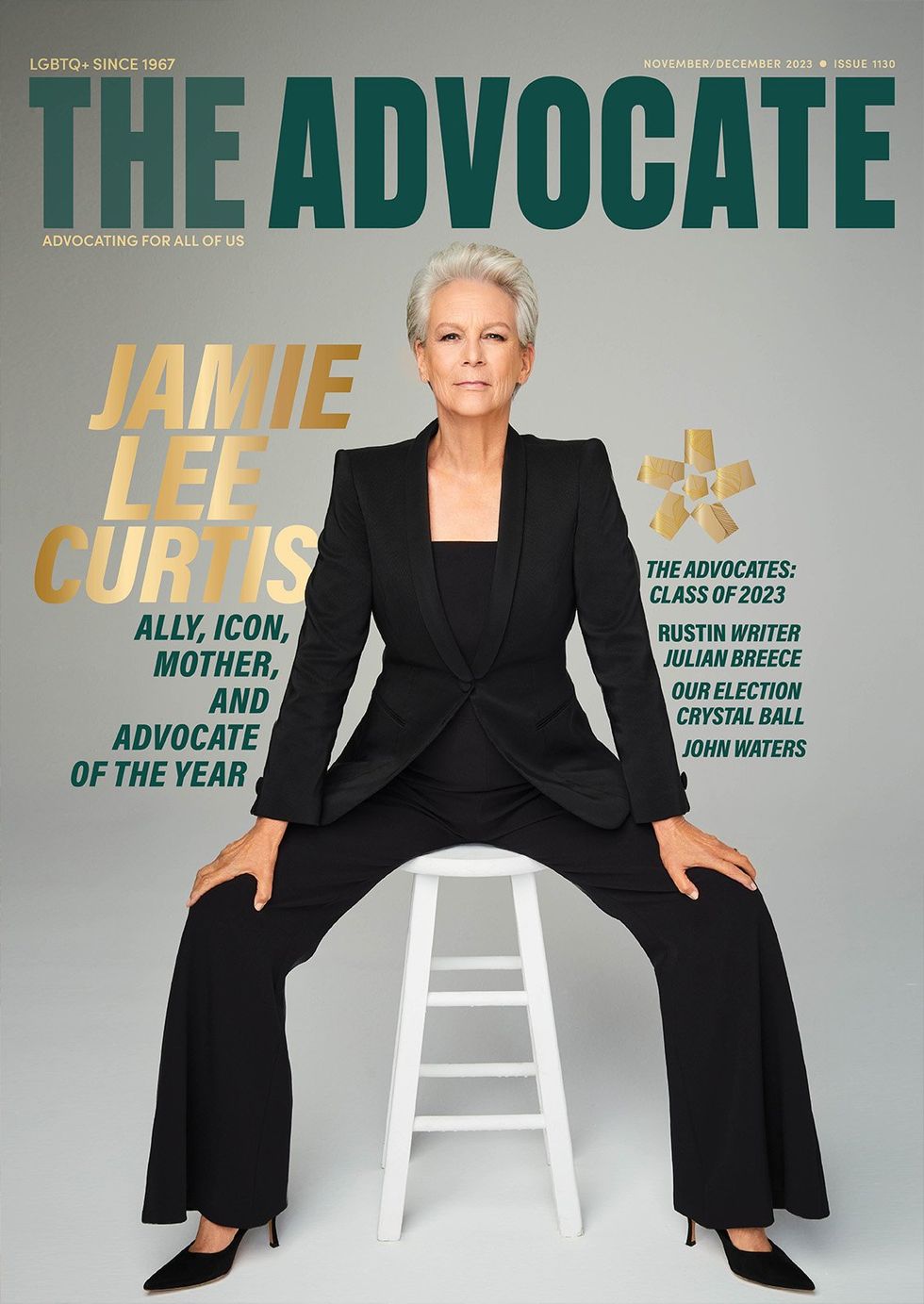
Photography: ANDREW ECCLES @eccles for Walter Schupfer Management @walterschupfermanagement
Hair: SEAN JAMES @seanjameshair for Aim Artists Agency @aimartist
Makeup: GRACE AHN @gracegraceahn for Day One Studio @dayone__studio
Styling: JANE ROSS @jrossgirl
Video: MIGUEL TORRES @angelflightmedia
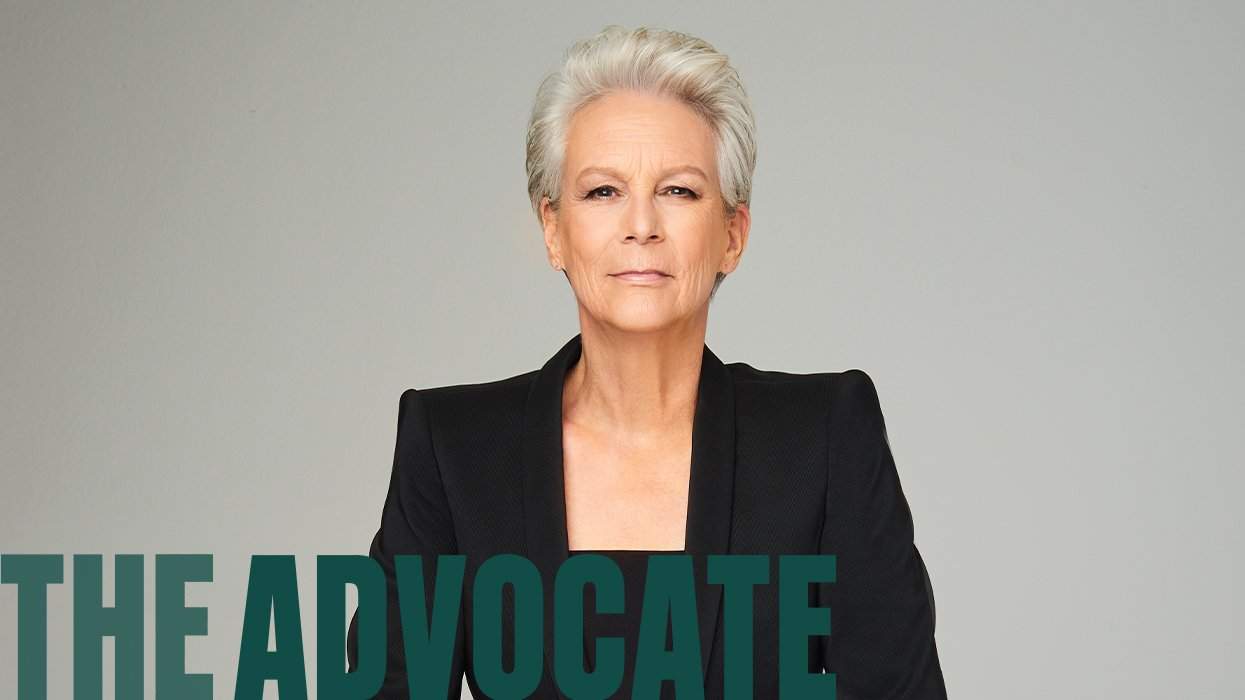





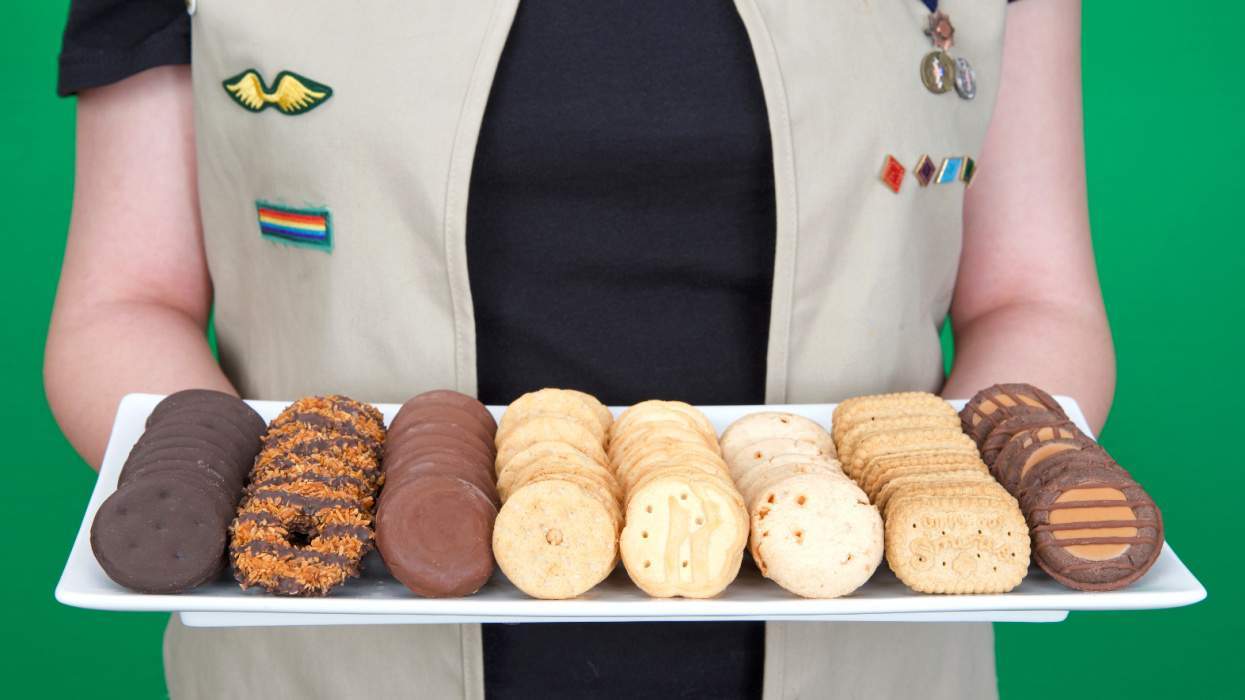

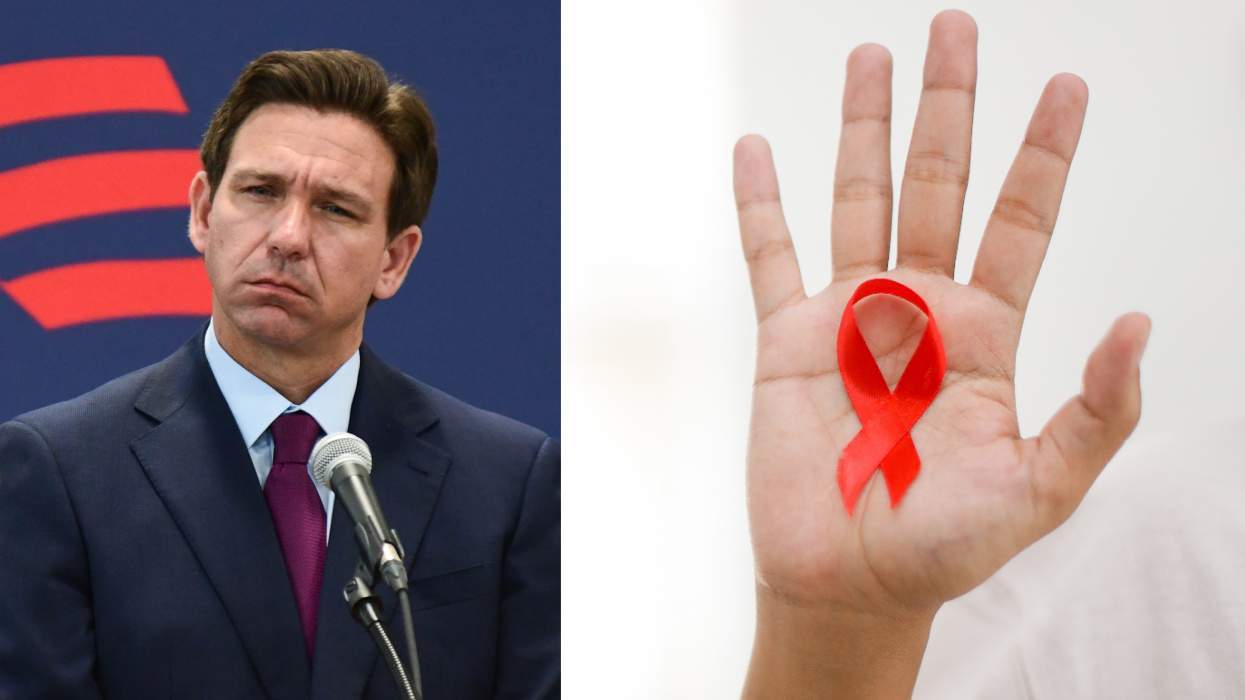
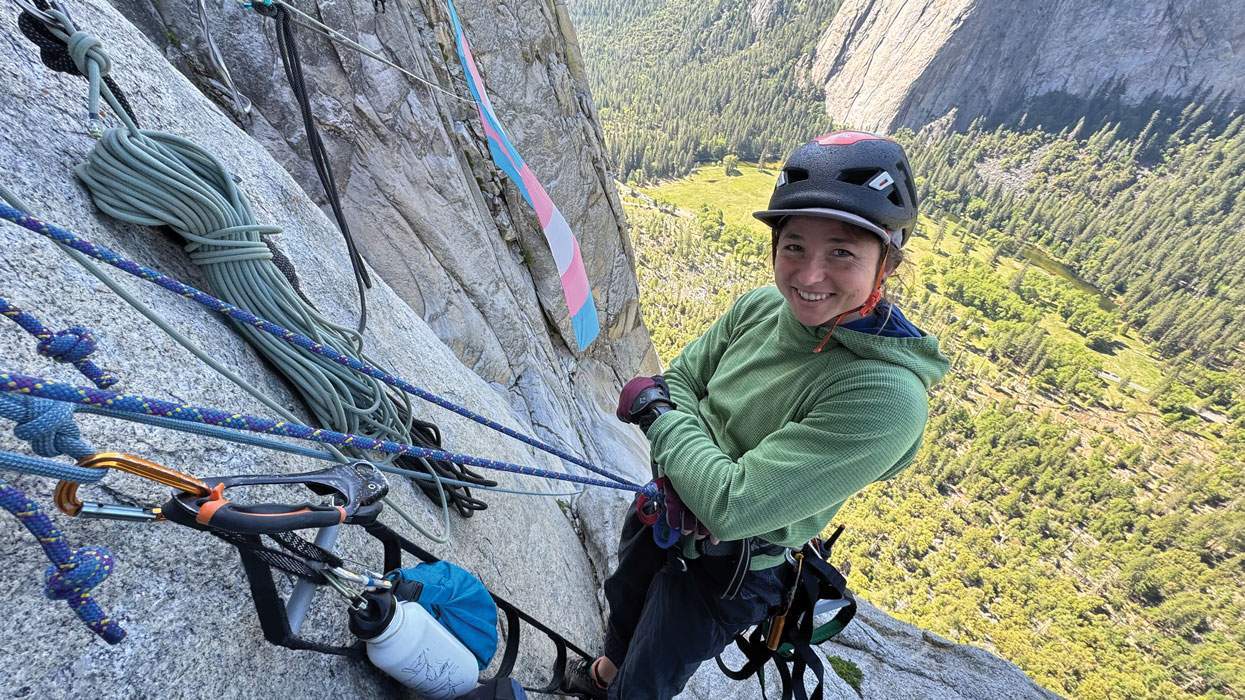
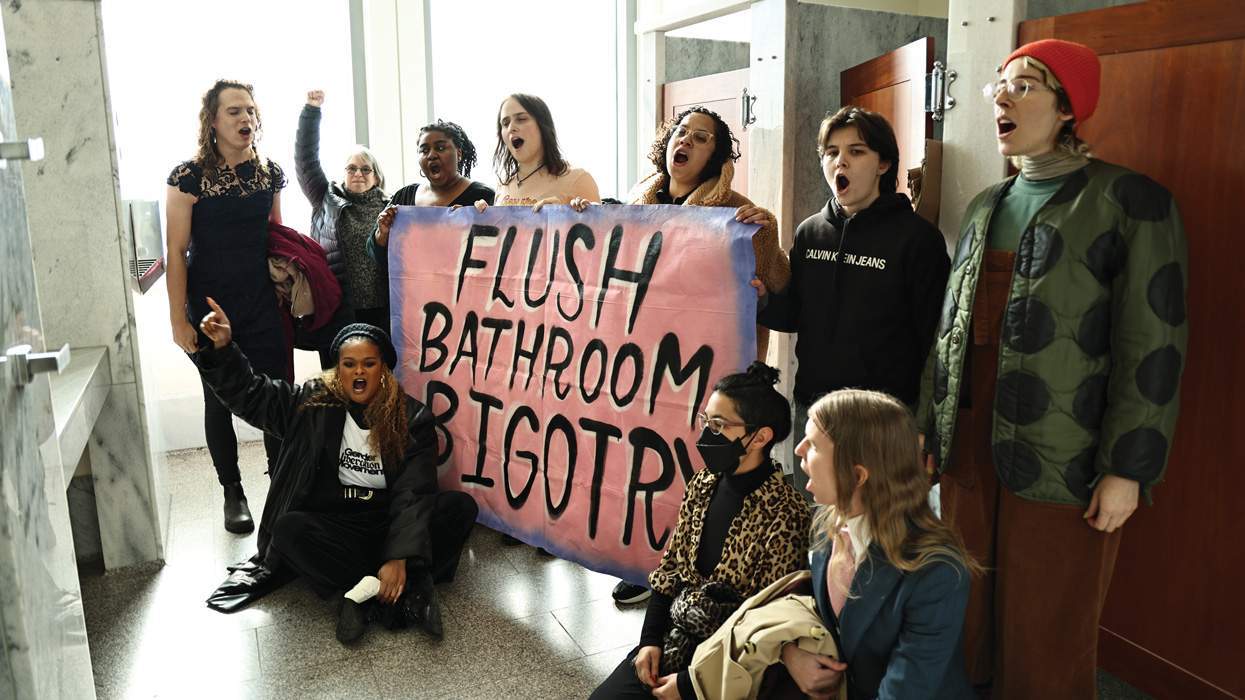





Charlie Kirk DID say stoning gay people was the 'perfect law' — and these other heinous quotes
These are some of his worst comments about LGBTQ+ people made by Charlie Kirk.